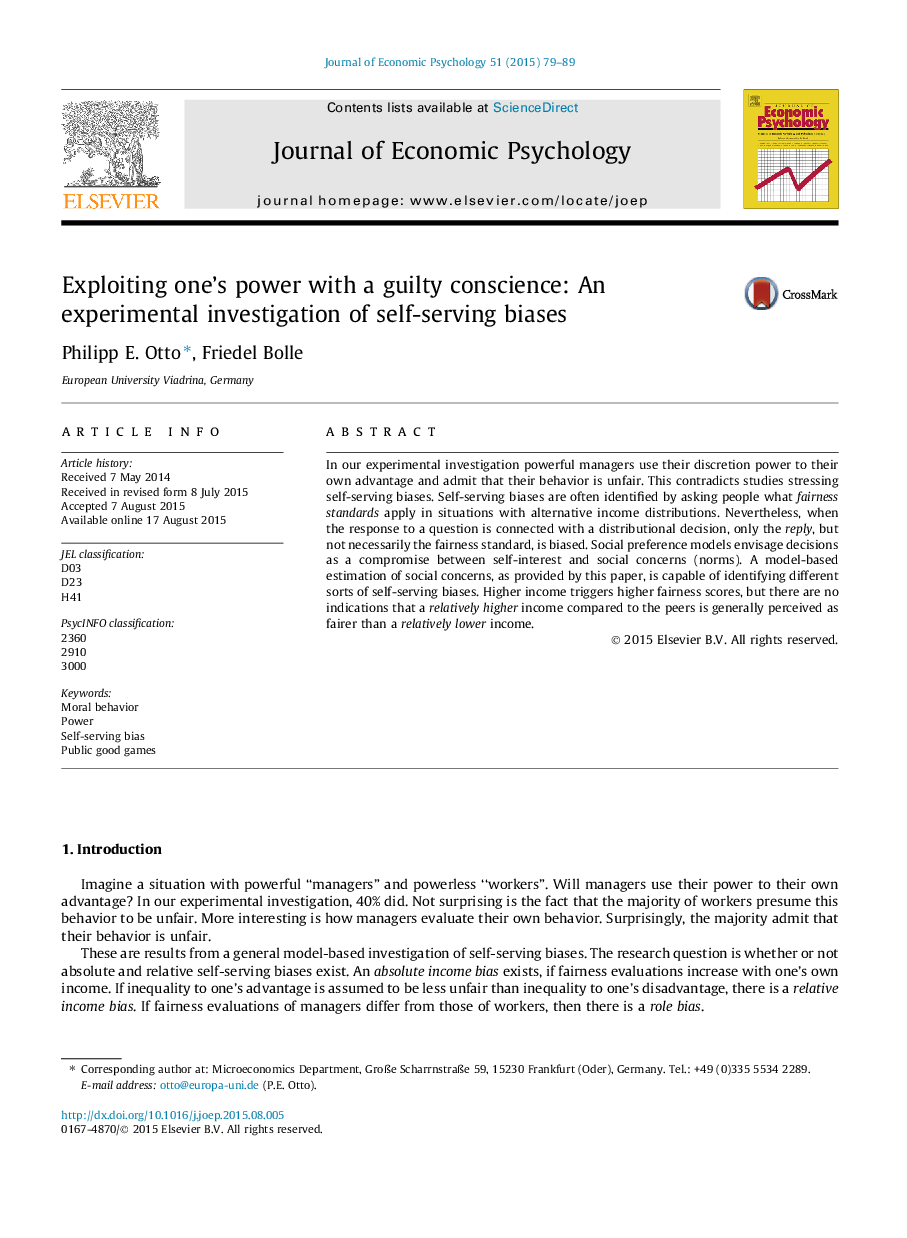| Article ID | Journal | Published Year | Pages | File Type |
|---|---|---|---|---|
| 7244497 | Journal of Economic Psychology | 2015 | 11 Pages |
Abstract
In our experimental investigation powerful managers use their discretion power to their own advantage and admit that their behavior is unfair. This contradicts studies stressing self-serving biases. Self-serving biases are often identified by asking people what fairness standards apply in situations with alternative income distributions. Nevertheless, when the response to a question is connected with a distributional decision, only the reply, but not necessarily the fairness standard, is biased. Social preference models envisage decisions as a compromise between self-interest and social concerns (norms). A model-based estimation of social concerns, as provided by this paper, is capable of identifying different sorts of self-serving biases. Higher income triggers higher fairness scores, but there are no indications that a relatively higher income compared to the peers is generally perceived as fairer than a relatively lower income.
Related Topics
Social Sciences and Humanities
Business, Management and Accounting
Marketing
Authors
Philipp E. Otto, Friedel Bolle,
